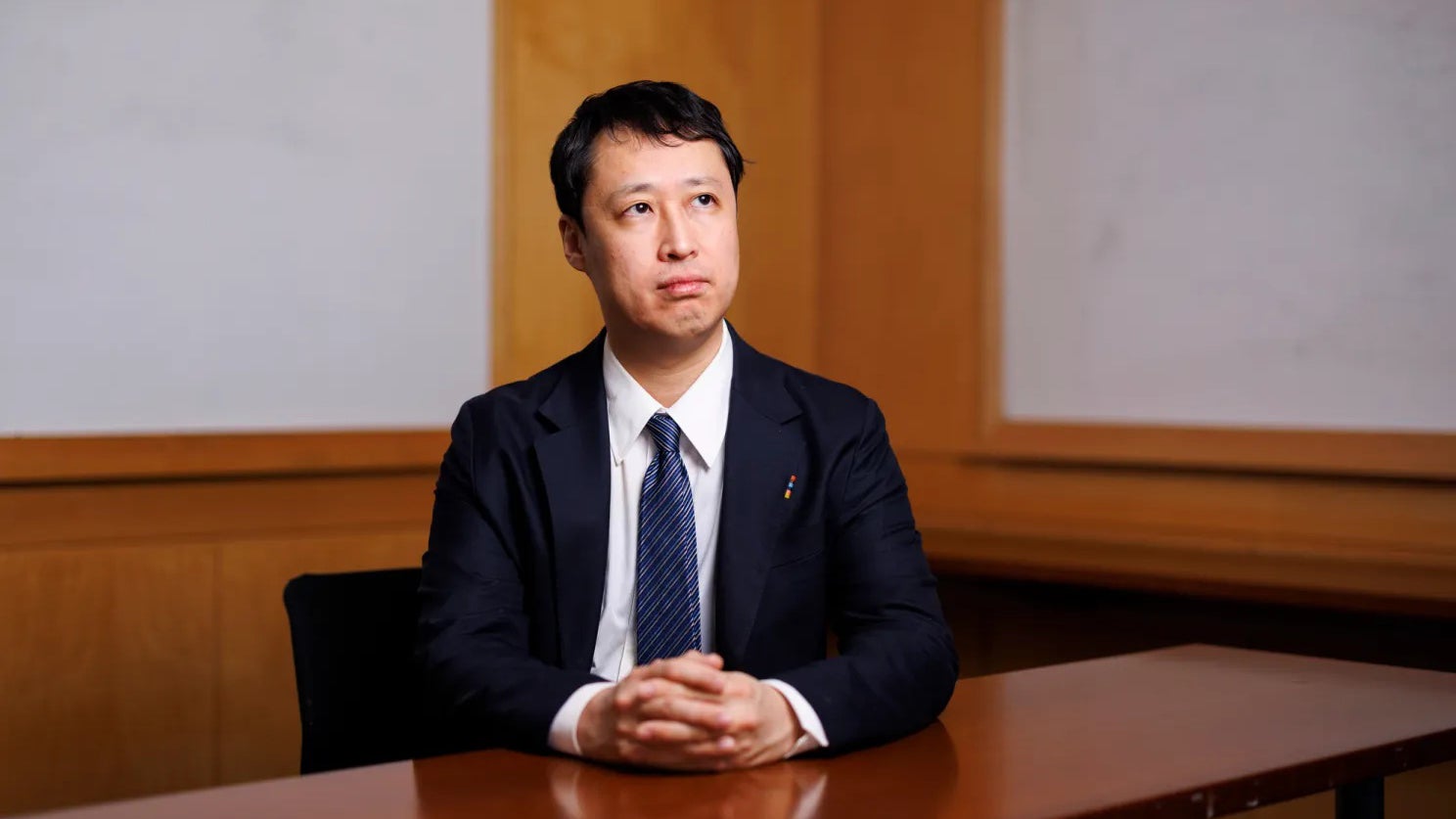Where in the world is Tim Rebbeck?
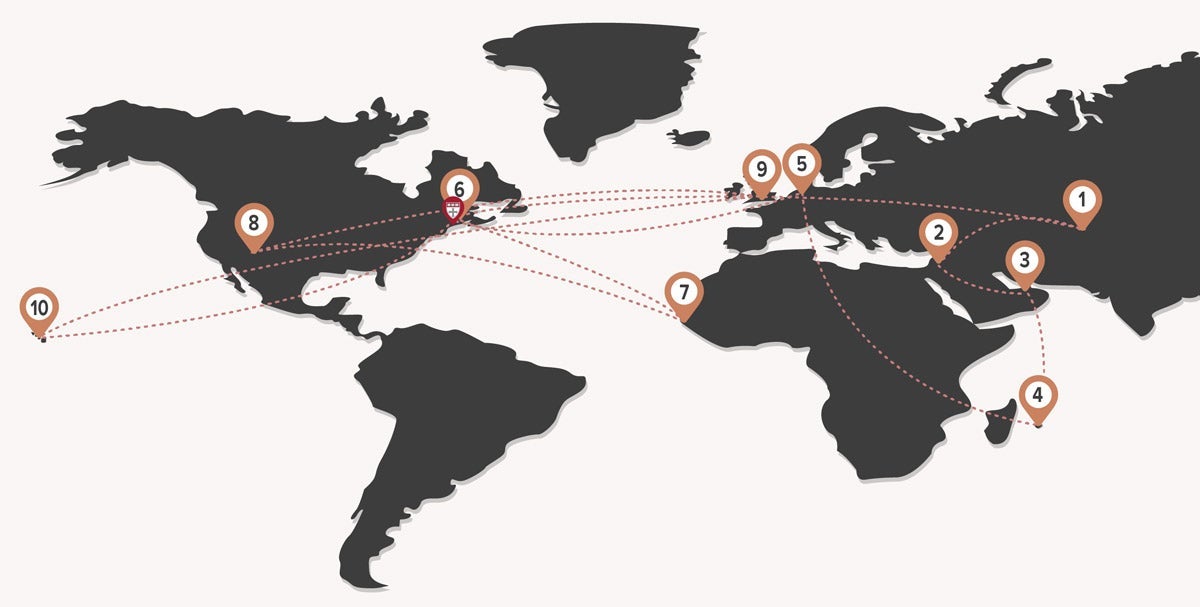
February 9, 2024—If you email Tim Rebbeck, chances are you will receive an out-of-office reply. But that doesn’t mean the Vincent L. Gregory, Jr. Professor of Cancer Prevention at the Harvard T.H. Chan School of Public Health is on vacation. In fact, Rebbeck, a leading expert in cancer etiology and disparities, is most likely somewhere in the world advancing the mission of the Zhu Family Center for Global Cancer Prevention, which he has directed since its founding in 2019.
Last fall, for instance, Rebbeck traveled to eight countries across four continents to present his latest research findings, catch up with other scientists studying cancer prevention strategies, and meet with government officials and other leaders to discuss how to incorporate new recommendations into public health practice. Read the travelogue below to learn more about the places he visited, the people he met, and how these international partnerships are key to helping the Zhu Center pursue its goal of reducing the cancer burden worldwide.
Around the world in 110 days
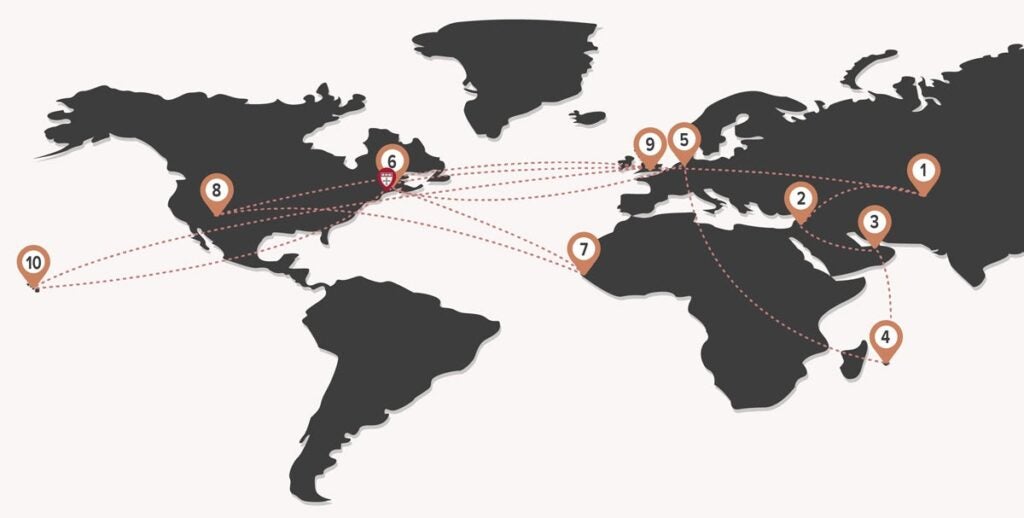
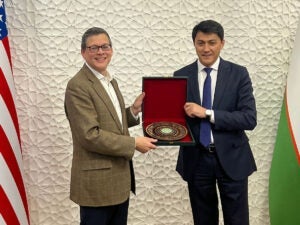
1. September 4-10, 2023 – Uzbekistan: I met with cancer groups in Tashkent, Bukhara, and Samarkand. I attended the first Uzbek-U.S. Health Forum to understand how we can build health care capacity in the country. I met with the Uzbek Minister of Health, Amrillo Inoyatov, and his team to build collaborations on cancer research, education, and training.
2-3. October 6-9 – Tel Aviv, Israel: I left Boston the evening of October 6 and arrived in Tel Aviv on October 7, the day the armed conflict started. We spent two days in and out of air raid shelters before being able to find a flight to Dubai. The conference I was set to present at—on disease prevention, detection, and treatment—was canceled.
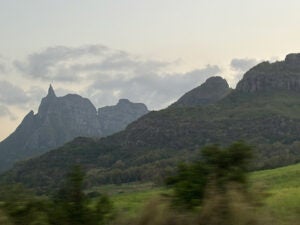
4. October 16-20 – Port Louis, Mauritius: I attended a meeting sponsored by the Mauritius Economic Development Board to discuss how African countries can build economic strength through health care, research, and prevention. I made connections with African governments and industry and the local U.S. Embassy to address the cancer burden in Africa. While in Mauritius, I also attended virtually a two-day meeting of the external advisory board of the University of Utah’s Huntsman Cancer Institute. The last meeting ended at 3 a.m. Mauritius time.
5. October 24-26 – Berlin, Germany: After connecting flights in Dubai and Doha, I arrived in Berlin. Germany’s federal government sponsors high-priority research initiatives to advance science and health in the country, and I served as a scientific consultant to help it select cancer prevention initiatives. After a quick layover in London, I traveled back to Boston.
6. October 28-30 – Boston, U.S.: I spent three days in Boston, enough time to do laundry and participate virtually in a Mayo Clinic Comprehensive Cancer Center external advisory board meeting to review the center’s accomplishments and plans in cancer research and care. The evening of October 30 I left for Dakar.
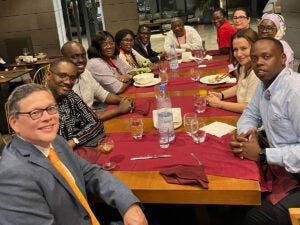
7. November 1-6 – Dakar, Senegal: I attended the African Organization for Research and Training in Cancer conference and held meetings with multiple African groups I lead: the African prostate cancer consortium I founded known as the Men of African Descent and Carcinoma of the Prostate (MADCaP) Network; an NCI-funded D43 training grant for African researchers and project managers for which I serve as principal investigator; the African Oncogenetics Network that is developing capacity for cancer clinical genetics in Africa; and the African Cancer Leadership Institute that supports future cancer leaders in Africa with training and networking. Our team also hosted dinners, receptions, and other events for our colleagues throughout the week.
8. November 20-22 – Albuquerque, U.S.: I went to New Mexico in my role as a member of the external scientific advisory board for the University of New Mexico Comprehensive Cancer Center. They recently hired a new director, so our guidance on strategic planning and action was particularly timely.
9. December 11-13 – London, U.K.: I serve as a member of the scientific committee for the Cancer Grand Challenges initiative sponsored by Cancer Research U.K. and the U.S. National Cancer Institute. After a year-long process, we interviewed the finalists and selected teams that will receive $25 million grants to address important challenges in the field of cancer.
10. December 13-23 – Honolulu, U.S.: I flew directly to Honolulu to attend the University of Hawai’i Cancer Center’s external advisory board meeting. The center is going through its latest five-year cycle of support and review by the National Cancer Institute, so our visit came at a key time. The area they serve includes Hawaii and much of the Pacific, and they have made major impacts on people there both in terms of prevention and treatment. My wife joined so we could spend some time together to celebrate our anniversary.
Travel-size Q&A
- Hours in the air: 140+
- Best meal: Chaat in Mauritius
- Favorite airport: Hamad International, Doha, Qatar
- Packing hack: Never check a bag. Hotels can do laundry if needed.
- How to be a good public health ambassador: Listen to what local people prioritize and need—and help them achieve it once they invite you to collaborate.
- Why so much travel?: Committing to a career in global health means accepting serious time in the air. Being physically present with global partners is a necessity. But concerns over climate change means I need to think about new models for a lower carbon footprint, such as meeting virtually and consolidating trips when possible.
Map: Mary Delaware; Photos: Courtesy of Tim Rebbeck


